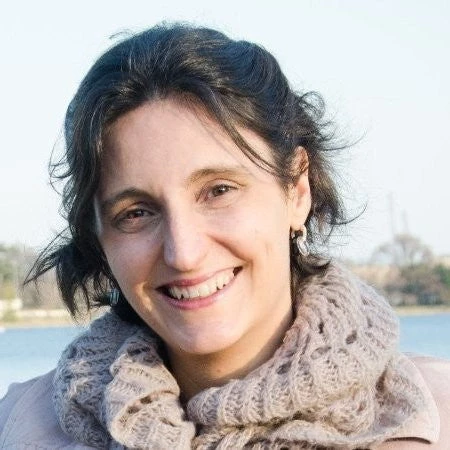 Ikhlas Mansour (middle) with two friends. Credit: Miguel A. San Joaquin.
Ikhlas Mansour (middle) with two friends. Credit: Miguel A. San Joaquin.
Growing up in rural Chad, Ikhlas Mansour was a happy child who attended school every day. But everything changed the day her mother died during childbirth. With the family plunged into poverty, school became a luxury they could no longer afford.
“There was no food at home, and I had to help my older sisters with domestic chores. All my dreams evaporated. It broke my heart not to continue my education,” Ikhlas recalls.
Ikhlas’s story is far from unique. In Chad, nearly one in three adolescent girls aged 15 to 19 is not in education, employment, or training. Across Western and Central Africa, 60% of out-of-school girls have never even set foot in a classroom. Poverty, child marriage, and early pregnancy are persistent barriers, cutting short girls’ futures before they begin.
Opportunity Transforms Lives… and Economics
Yet, girls like Ikhlas rarely get a second chance. That changed when she found a “safe space” supported by the Sahel Women’s Empowerment and Demographic Dividend project (SWEDD). There, she gained life skills, rebuilt her confidence, and returned to secondary school.
“My school fees were paid, I received a uniform, and I was offered a place to stay near the school. It was all covered by SWEDD,” says Ikhlas.
 Young women in a midwife training school in Chad. Credit: Miguel A. San Joaquin.
Young women in a midwife training school in Chad. Credit: Miguel A. San Joaquin.
Safe Spaces: The platform for a brighter future
Ikhlas is just one of the many young women whose lives have been transformed through the Sahel Women’s Empowerment and Demographic Dividend project (SWEDD). Over the past ten years, SWEDD has improved opportunities for 2.7 million girls and women across nine countries, focusing on four key areas: education, health, economic opportunities, and gender equality.
Safe spaces coupled with other interventions aimed at keeping girls at school and providing economic opportunities, like the one Ikhlas joined, are at the heart of this work. Safe spaces are community-based initiatives that provide life-skills training, mentoring, and a safe environment where girls learn about health, the risks of early marriage, and the value of education. More than 650,000 girls have participated in these programs, gaining confidence and tools to reclaim their futures. SWEDD also supported Iklhas and 20,000 other women to train as midwives, expanding access to reproductive, maternal, and child health services in underserved areas.
The new SWEDD documentary captures these transformations.
In Benin, Odette and Angelique became solar panel technicians—breaking gender norms and bringing clean energy to their communities. Harmelle, forced to leave school at 14, now runs a thriving snail farming business. These young women are not only earning a living, but they are also driving their own futures and becoming role models for the next generation.
Their journeys show that with the right support, girls can go from limited prospects to limitless potential.
Creating an enabling environment for girls to thrive
Empowering girls requires more than individual support. It demands systemic change. SWEDD’s legal platform supported the adoption of 41 national and regional frameworks to keep girls in school, protect their rights, promote reproductive health, and combat gender-based violence.
Changing public attitudes is just as important. In 2024 alone, SWEDD’s awareness campaigns promoting positive gender norms reached over 400 million people. These campaigns are targeted, locally customized and speak directly to adolescent girls navigating the pressures of tradition, family duty, and their own ambitions. But the campaigns also speak to their parents, their husbands and future husbands, and community and religious leaders, who are essential links in the chain of long-term change.
The agenda continues
Building on a decade of impact, the Sub-Saharan Africa Women’s Empowerment and Demographic Dividend Plus project (SWEDD+) includes seven countries: Burkina Faso, Chad, Senegal, Togo, Gambia, Mauritania, and Mali. SWEDD+ aims to deepen and scale interventions, reaching even more girls and young women given them the opportunity and the skills to thrive.
The stories of Ikhlas, Odette, Angelique, Harmelle, and countless others are testaments to the resilience and potential of Africa’s young women. Every investment in education, health, and empowerment is an investment in a more prosperous, equitable future for the entire continent.




Join the Conversation